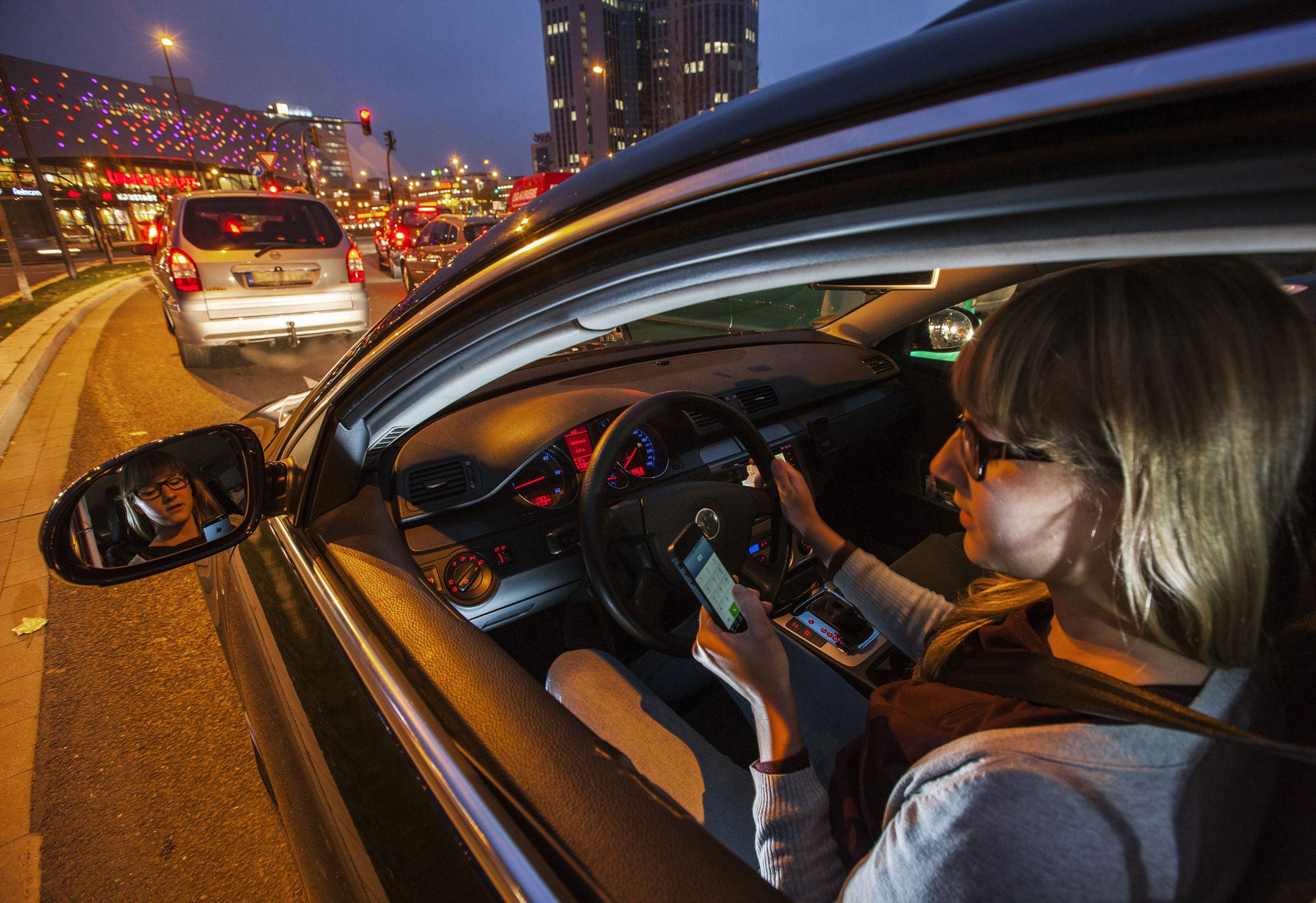'Texting gun' could help law enforcement spot drivers using their phones behind the wheel
The US device is "close to production" and can distinguish between phones that are calling, texting or using their mobile internet connection

Your support helps us to tell the story
From reproductive rights to climate change to Big Tech, The Independent is on the ground when the story is developing. Whether it's investigating the financials of Elon Musk's pro-Trump PAC or producing our latest documentary, 'The A Word', which shines a light on the American women fighting for reproductive rights, we know how important it is to parse out the facts from the messaging.
At such a critical moment in US history, we need reporters on the ground. Your donation allows us to keep sending journalists to speak to both sides of the story.
The Independent is trusted by Americans across the entire political spectrum. And unlike many other quality news outlets, we choose not to lock Americans out of our reporting and analysis with paywalls. We believe quality journalism should be available to everyone, paid for by those who can afford it.
Your support makes all the difference.Texting while driving can be just as dangerous as travelling over the speed limit but except in the most obvious case it can be difficult for law enforcement to spot offenders.
However a new gadget dubbed the 'texting gun' could join the speed radar and breathalyser as key weapon in the fight for road safety.
The device has been developed by US company ComSonics, who claim that the device can detect the distinct radio frequencies emitted by a phone sending a text.
In America texting behind the wheel has overtaken drink driving as the biggest killer of teenagers, with more than 3,000 young people killed every year from crashes caused by distracted drivers.
Virginia-based ComSonics say that their 'texting gun' could help curb this problem, using technology based on the devices used by TV repairmen to locate damaged TV cables by ‘leaked’ transmissions.
Malcolm McIntyre, a spokesman for the company, told local media that although the company was currently trying to clear several legislative hurdles the device was “close to production”.
Mr McIntyre added that despite privacy concerns the Sniffer Sleuth was unable to intercept any of the content of texts being sent – although he added that it was able to distinguish between the frequencies used for texting, calling and mobile data.
This would certainly help the gadget be more efficient in regions where it’s illegal to text but legal to call, but it still doesn't overcome one of the product's key flaws.
Although the old style of SMS messaging may still be fairly popular, younger mobile users tend to prefer apps that send messages using an internet connection.
Even with the Sniffer Sleuth this activity would be indistinguishable from the data connection used for safer activities such as playing music or providing driving directions.
Join our commenting forum
Join thought-provoking conversations, follow other Independent readers and see their replies
Comments